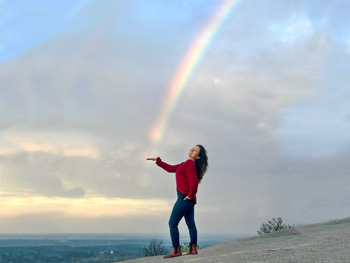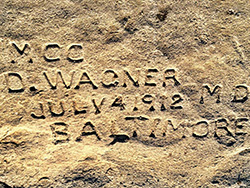The 13th Amendment to the U.S. Constitution abolishing slavery was ratified today, on December 6, 1865 (150 years ago next year). It states: "Neither slavery nor involuntary servitude, except as a punishment for crime whereof the party shall have been duly convicted, shall exist within the United States, or any place subject to their jurisdiction."
It was probably no coincidence then that also on December 6, 1915 (100 years ago next year), D.W. Griffith’s blatantly racist “The Birth of a Nation” screened at the Atlanta Theater (once located at 23 Exchange Place and demolished in 1954), followed by a Klan march down Peachtree Street. The silent film and KKK recruiting tool was America’s first full-length motion picture and was based on the novel (and play) The Clansman by Thomas Dixon, Jr. Following its release in 1915, riots and protests erupted across the U.S.—but not in Atlanta, like the 4-day riot the city had once seen in 1906—and the NAACP, which formed in 1909, even sought to ban it. The December 7, 1915 edition of the AJC even printed a resoundingly positive review of the film. No matter the cinematic advancements it heralded, I will always remain deeply repulsed that this three-hour film, filled with so much crudely celebrated racism (including an assassination scene of President Abraham Lincoln, who emancipated the slaves) and often credited with the rebirth of the Klan at Stone Mountain, is still considered one of the greatest movies of all time, even by respected critics such as Richard Brody (New Yorker) and the late Roger Ebert, among others. I do really wonder what will be said upon its centennial next year.
December 6th is also St. Nicholas Day, of course, and it’s entirely possible that detail didn’t escape The Klan’s notice either when choosing the date of the Atlanta premiere. While certainly considered a heroic saint and a bringer miracles to many, often called Nikolaos the Wonderworker, he is also associated with racism in many cultures, such as in The Netherlands. As if fashioned after aspects of Saint Nick, the Klan promoted itself as a bringer of miracles to South, saving it from freed slaves and Yankees, and their white hooded costumes were often striped red and green.
So will the film show next year in Atlanta for its centennial? I asked Josh Rosenfield, Lead Manager at Midtown Art Cinema, and he for one will not be showing it at his theater but does think film students should continue to watch the film in the proper context and with an objective mind.
“I think most people would have preferred that the film most important to the advancement in narrative film and the formation of the modern cinema not have been “The Birth of A Nation,” and I don’t think we can ever completely reconcile its horrific content. Why watch it now? Because we are doomed to repeat the mistakes of the past if we don't heed its warnings. Watch it now as an anthropologist, as if you are watching a lost culture from a faraway world. Again, the tragedy of the film is the content, but it’s important to understand that Griffith changed the language of film, from score, to length, to style. It’s as if Griffith was the first to understand the power of the movie camera, the ability to move in close to the actor and to share the characters’ emotions and motivations. He was the first to use subtle movements to convey real feeling. The shot of the mother’s hand coming out of the door to embrace her lost son after the war, to this day it is still a powerful shot.”
Shannon Byrne personally thanked Abraham Lincoln for freeing the slaves when she met him in July 2014 during festivities in East Atlanta Village commemorating the Battle of Atlanta’s 150th Anniversary.



























































